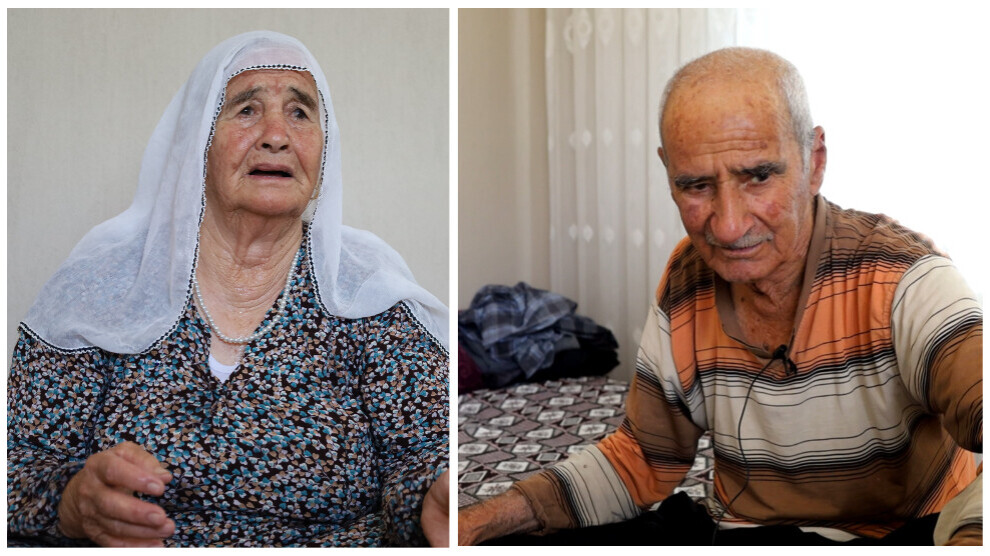A life in exile and poverty
In the 1990s, the Gültekin family was driven out of their village by the Turkish military, and the village in the Lice district was burnt down. Having returned to their village, they are now faced with poverty.
In the 1990s, the Gültekin family was driven out of their village by the Turkish military, and the village in the Lice district was burnt down. Having returned to their village, they are now faced with poverty.

In the 1990s, the Turkish state destroyed over 4000 Kurdish villages. Many of them were burnt down and the population was displaced. Many people fled to Turkish metropolises or to Europe. Some of them returned but had nothing left. Others tried to survive in the places they fled to.
One of these families is the Gültekin family. They come from the village of Markê (tr. Erginköy) in the Lice district in the province of Amed (Diyarbakir). Soldiers raided their village in the 1990s, burned their belongings and forced them into exile. The family went to Adana, but held on to their desire to return to their village and continue their lives where they had had to leave them. This time, however, the couple's age was a major obstacle.
"They burned all our belongings," Hasret Gültekin tells of her life, which was marked by poverty and suffering after the flight. She earned her living as an unskilled labourer. "We planted gardens, but our earnings were still low. As if that was not enough, our village was raided. They drove me and my husband out barefoot in the middle of the night and burnt down our house. They burned all our belongings. We all had to gather in front of the mosque. We had relatives near our village. They came and took us with them. From there we went to Adana, where we lived in rent and poverty. We realised that we could not earn a living there no matter what we did. So my husband and I came back. We set up a small room in the village. I think it was damaged by the earthquake in February, but no one even came to check it. Our hope now is in God. Let's see what fate God will give us. We have just come to the village, we don't know if we will starve, die or live."
"Today, people are selfish and introverted," says Hasret Gültekin's husband Mehmet and continues: “For decades, we grew millet in the village and could live from selling the harvest, albeit with difficulty. Since there were no tractors or other motorised vehicles back then, we did everything with our hands. Therefore, we worked more in the fields, but we were in solidarity with each other. We used to collect tons of tomatoes that we grew and take them to the city in trucks to sell them. But all that doesn't exist anymore. In my youth, people's attitudes were much better than today. Nowadays, everyone is selfish and introverted. In our time, there were landowners, but the villagers still did not let their rights be taken away.”